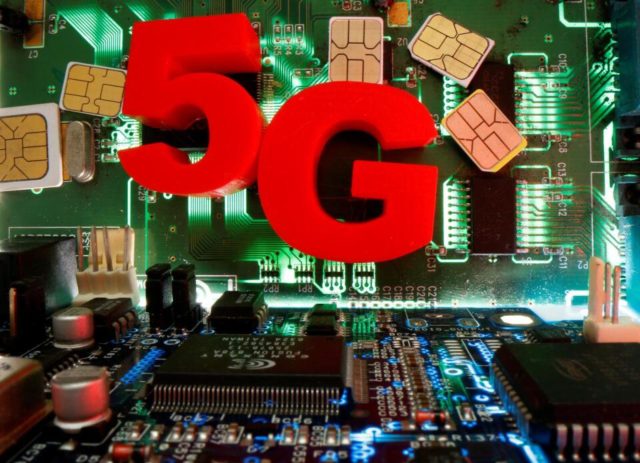The mobile network is only available in Johannesburg, Pretoria at the moment, but further rollouts are planned in other parts of the country.
Mobile operator Vodacom Group announced on Monday it had switched on Africa’s first live 5G mobile network in Johannesburg, Pretoria and Cape Town, with further rollouts planned in other parts of the country.
Vodacom was recently assigned temporary additional spectrum by South Africa’s telecoms regulator for the duration of the national lockdown to tackle the coronavirus pandemic, which has been used to fast track its 5G launch, the company said in a statement.
The deployment of 5G is set to help Vodacom manage the 40% increase in mobile network traffic and the 250% increase in fixed traffic.
The lockdown has resulted in a spike in online activity, from video conferencing to streaming movies.
5G spectrum is largely unassigned in the country and regulator, ICASA, said it will auction additional spectrum by the end of the year.
Customers can check if they are in a 5G coverage area on the Vodacom website. You have a choice of either signing up for a new 5G device deal or upgrade online.
Once upgraded or signed up for the new device, the new 5G device will be delivered to the customer’s home during the national lockdown period. Covid-19 regulations will be adhered to during the delivery. The new 5G network currently supports the LG V50 5G smartphone and Huawei 5G CPE PRO router.
What does it mean for South Africans?
Faster speeds
Peak speeds on 5G is set to increase significantly. 5G will enable fibre-like speeds using the mobile network, making it useful to download media content like 4K and even 8K movies in a matter of minutes. Netflix marathons would be a breeze and you could even live-stream a virtual reality experience on the go.
The higher speeds from 5G will also enable entirely new applications in future like augmented and Virtual Reality (VR).
Lower latency and better reliability
Latency is the time it takes for devices to send and receive signals between each other. Latency is very important for applications which require near real time responses.
Latencies of a 4G network are usually between 20-30 milliseconds whereas 5G can support latencies as low as 1 millisecond.
The impact of this would be felt during gaming and in future, when driverless cars become the norm. With 5G, two cars could recognise an impending crash and activate the brakes 60x faster than before as well as notify 50 other cars in the time it once took to notify one.
“Increased connectivity and lower latency mean a new world for the Internet of Things too. While our current-generation of IoT systems has streamlined our houses and workspaces, the next generation will offer a more personalised experience whereby information from your phone will dictate how your surroundings respond to you,” said Vodacom.
Improved battery life
Users will also see an improvement in battery life. Faster transfer speeds and more efficient connectivity with IoT devices means less time using the device.
IOL TECH








